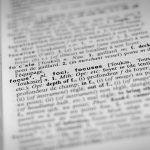David Ausubel was an American educational psychologist who was particularly known for his theories on learning and instruction. His research focused on how people acquire and organize knowledge. In 1968 he published the book Educational Psychology: A Cognitive View, where he expounded on his theories and concepts related to “meaningful learning”.
The core of the idea is that new information is better retained when it can be related to existing cognitive structures or what he called the learner’s “prior knowledge”. Some others of Ausubel’s key concepts are:
- Advance organizers: a framework or an overview of the material before learning new information could enhance comprehension and retention. This can help learners connect new knowledge to their existing cognitive structures, promoting meaningful learning.
- Meaningful learning: refers to the process of actively integrating new information into existing cognitive structures, making it more likely to be retained.
He emphasizes the active role of learners in building their understanding and knowledge. His ideas were connected to the wider idea of constructivism, which started to become popular.
Ausubel contrasts meaningful learning to “rote learning”, where you memorize something without full understanding and you don’t know how the new information relates to your other stored knowledge. While rote learning can be effective for memorizing specific details, it often lacks comprehension and may result in superficial understanding.
For language learning, that means that if you want success you need to start contemplating a mental framework that lets you connect words and grammar to what you already know about the world, whether other languages or anything else. If you don’t do this you will struggle to understand the relevance of the language components.








